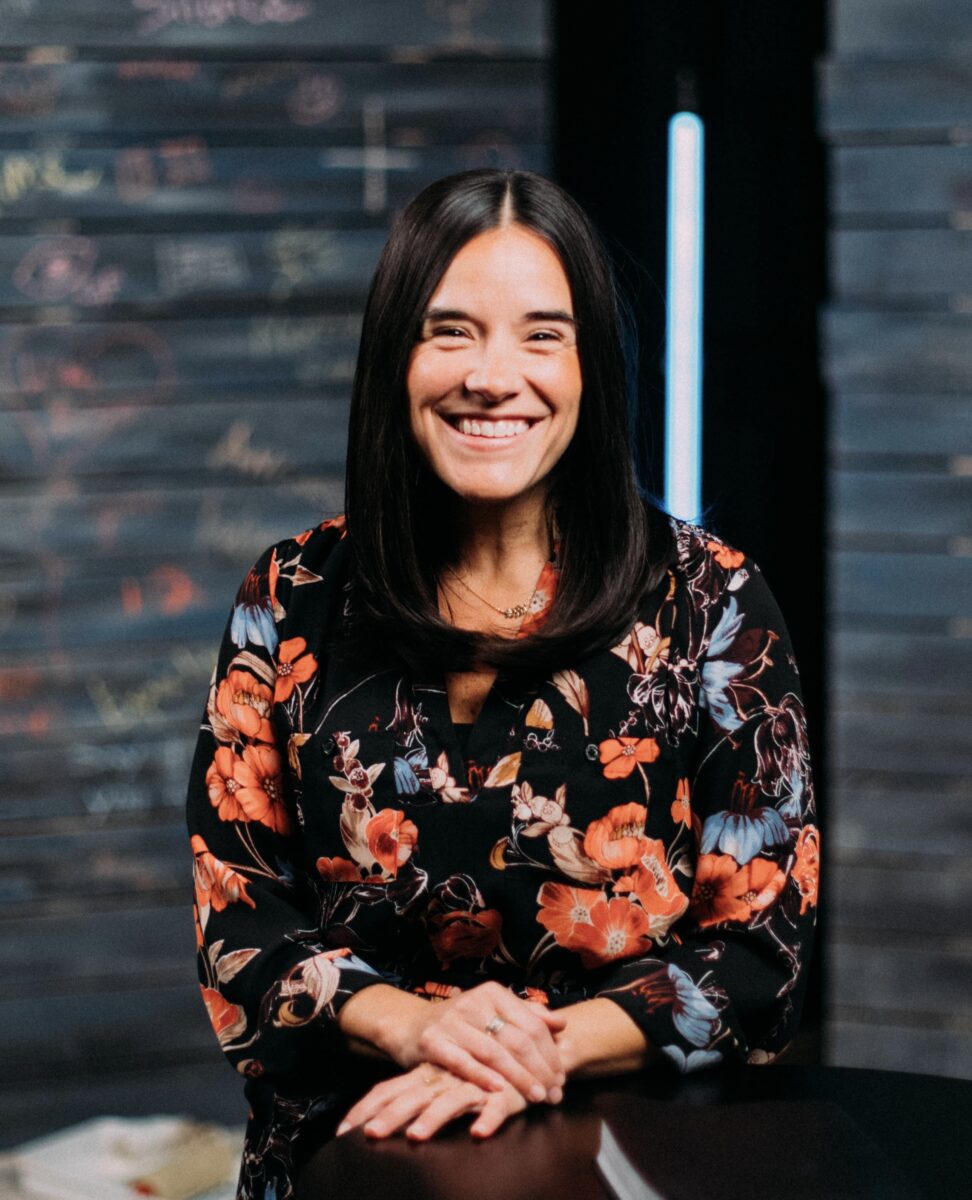
Women Want to Lead Ecosystems, Not Empires
If you’re going to launch a movement, that movement is going to need a leader…and that leader is you. Is that a scary thought? It shouldn’t be! Keri Ladouceur, founder of New Ground Network, shares why she believes women are wired to lead an ecosystem, not an empire, and encourages all leaders to pair rational thinking with their own intuition.
You can listen to this entire conversation with Keri on our podcast, Work, Love, Pray! Listen below or click here to find your preferred listening platform.
Leading a movement means that you have to be a leader—and that might actually be the biggest obstacle holding some potential movement-makers back. What type of leadership would you say is best for movement makers?
I worked in one of the most prominent and influential churches in North America that shaped a paradigm of church around the world, and it had a pretty intensive leadership culture. During my time there, I actually got pretty wounded trying to speak up about some injustice within the culture there. That negative treatment kind of dismantled most of the imagination that I had for what leadership was, or at least what I had been trained to understand that leadership was. I was set on a journey of trying to redefine what leadership is and what it means to be a leader.
I think that’s a part of what can hold women back—not having done the work to define “what is leadership?” When we are able to decolonize our minds and think differently about what it actually means to lead, what it actually means to have the best intentions in mind for the people that you’re responsible for stewarding, for the vision or purpose that you’re responsible for, I think that shifts our thinking from leadership just being about the one who’s out front. Instead, we start to allow systems to emerge that will uplift everyone to be engaged. Everyone won’t always get to have their way but does get to have their way heard. My role as the leader is to be the tide that lifts all boats, not just be the one that’s doing the best and performing out in front of everyone.
Your own definition of leadership really matters when it comes to how you’re going to unleash your gifts and the gifts of those around you. I would propose there’s a shift happening, particularly with women, that being the leader isn’t being the smartest person in the room or one who asks the best questions. Being the leader is being the person who lifts the purposes of everyone around them without unintentionally objectifying the people around them for their own purposes.
We might think that being an impactful leader means that you’ve built a massive and impressive empire with your name emblazoned on the front of it. But you think that great leaders build something a little bit different, right?
Great leaders are less concerned about their own image, brand, or self-promotion. We see this type of leadership a lot in women because they’re not conditioned or cultured to be self-promoting in ways that men happen to be more socialized and conditioned for. Women build ecosystems of flourishing where there’s partnership and reciprocity and there’s a generative nature to the relationship and how we steward whatever it is that we’re called to do. Women tend to lean towards more towards ecosystems, not empires with their name on the front of the building.
Shalane Flanagan, an Olympic runner, is a great example of this. When she trained to run the New York City Marathon, she crossed the finish line in two hours and 26 minutes, which was unheard of. She was one of the greatest American distance runners ever. But the New York Times did a writeup on her and she said that her biggest accomplishment was how she nurtured and promoted all of the talent around her. Something about the way that she led made it not just about her name and her gold medal, but instead, it was about this ecosystem of thriving women around her that she wanted to see succeed. In some ways, she defined her own success on the success of those around her. That’s ecosystem-over-empire-type leadership.
When you’re working on building a movement, should you worry about competition, or should you focus on finding collaboration with others who share your goals or mindset?
I perceive patriarchy to be, unfortunately, a system of evil that harms men and women and is very prevalent in our culture. One of the consequences of the way that patriarchy works is it tends to pit people against one another. In some more male-driven leadership environments, there’s a lot of ego, competition, and one-upping. This leadership style breeds competition, which breeds scarcity.
But when we can approach leadership cultures as collaborative and imagining, the answers can come when everyone in the room shapes together, and the answer from the collective is going to be better than just the leader’s answer. I’m a really strategic thinker and a great activator, but never is my idea the best idea when I can bring other people around that decision-making process. When ego and competition can take a backseat and we’re able to approach something collaboratively, that’s a team win. Data is important, but when we’re able to approach problem solving, visioning, or strategizing with a collaborative nature, we’re actually able to unleash abundance and can move from that scarcity mindset of competition into abundance where we’re owning something together.
There’s collaboration and there’s empowerment that comes with that shift. Pre-pandemic, there was research that said 70-80% of employees were disengaged in their jobs, and that number has only gotten higher. When we are able to approach things with collaboration and not competition, people feel empowered and will actually own solutions they help create. You might find that you no longer have to fire people up and get them running; you might actually have to pull them back because they feel so empowered and like such owner! So show up as a leader in a different way. You can move from scarcity to real abundance in how you think about solutions and taking new ground within your purpose.
How should movement makers make decisions about their movement’s ultimate destination?
Again, some of our male-dominated paradigms for leadership have really prioritized what we would call rational thinking. There are all sorts of leadership quizzes and tests and things that you can do to understand your strengths and weaknesses. All of us have emotions and intuition that are helping to shape the ways that we’ve made decisions. Rational thinking is just leaders who are disconnected from those more emotional parts of themselves. It’s actually more dangerous to just lead an organization or a team with only rationally minded thinking that’s disconnected from the intuitive wisdom inside each of us. For a long time, we’ve prioritized rational thinking as supreme, when the reality is that rational thinking may be the most misinformed way of thinking.
When we as movement makers and decision makers are able to connect with our intuition in some way, that’s where some of our best ideas for solutions or our best dreams and visions about what could be in the world come from. When we’re able to lead fully connected to all parts of ourselves, we’re equipped to make better decisions. This isn’t just Keri’s touchy-feely indigenous nature coming out! This is backed by data and research. When rational thinking, emotional health, and empathy and intuition are activated and incorporated into our leadership, we’re equipped to make more informed, more potent leadership decisions.

Keri Ladouceur is a pastor, teacher, incessantly curious question asker, and bridge building peacemaker. She believes the fullness of the gospel is liberative good news for all of creation and longs to cultivate new faith spaces of mutuality and flourishing for all people.
She is founder of New Ground Network, where she co-conspires with pastors, denominations, and organizational leaders to clarify and align around their purpose. One of her favorites roles is organizational coach where she is part dreamer, instigator, activator and team counselor. She has an MA in New Testament from Northern Seminary, and her imagination for the Beloved Community has been primarily shaped by her native heritage and liberation thinkers and theologians.
She dreams of the Church being a life-giving community of flourishing that activates the people of God to join Christ in the redemption and restoration of all things.